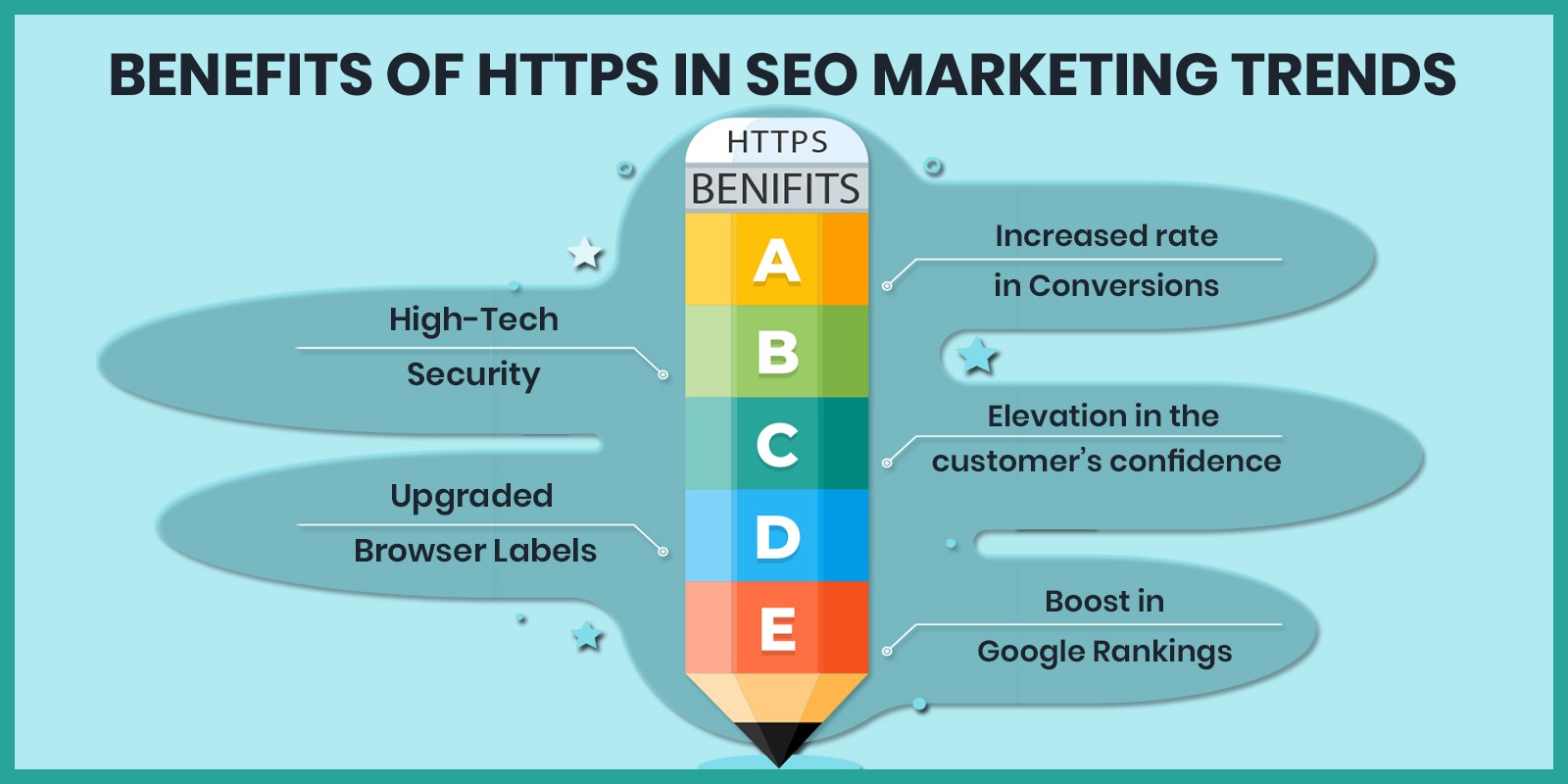HTTPS is a proven way to encrypt information that is initiated between a web server and browser. Through this aspect of the digital world, the website users can create a safe access to the information like credit card details or logins which sometimes get hacked by the middle person. The primary use of HTTPS is for the sites which are equipped with sensitive information. But, with the advancement in technology, HTTPS is now easy to implement for securing connections. If your website has not been covered with security through HTTPS, then get is secured soon.
Not one, but there are many benefits of HTTPS in Current SEO marketing trends.
- Boost in Google Rankings
According to the researches made, it has been found that over 40% of the websites showcasing on the first page of the Google are HTTPS. And, this should not be surprising for you. Google prioritizes only those websites which are HTTPS. Unsecured websites are not counted and become unworthy for the Google. For the best user experience of the audience, Google ensures that they do not make searches on the unsecured sites. If your site isn’t secured yet, then the time is not far when your site will get outranked by the similar sites that are HTTPS.
- High-Tech Security
Google approves only HTTPS websites because of the reason that it wants its users to experience the safest web experience. The rankings algorithm is combined with the criteria by the Google after it has been approved for providing the best user experience. HTTPS is an appropriate way to secure or protect user’s information as well as your information from the man-in-the-middle (Hackers). Maintaining a safer and secured ambiance on the online medium is a better alternative for everyone.
- Upgraded Browser Labels
To make the web more secure, updates in the labeling of HTTP sites in Chrome’s URL bar has been initiated by Google. According to the current status, the sites which are HTTPS are symbolized with a gray color and depicts to the users that the site is not secured.
- Increased rate in Conversions
A proven fact is that users have faith and trust in secure connections more. And, the sites which go with the same thought are more likely to get a better rank in Google search results. Users are not usually friendly with technicalities of secure connections, but they are known to the fact that the site should be HTTPS in case they are providing any personal information. There is a remarkable difference between the conversion rates of HTTP and HTTPS sites. But, one will be easily able to see huge differences in conversion rates between the two once Google launches its new HTTP labeling.
- Elevation in the customer’s confidence
Buzz about HTTPS can be seen all around the place and users are now looking for the websites that have a secure connection. A customer becomes satisfied and feels a great peace of mind while transacting things online on any website if it is a secure connection.
- Browsing becomes fast
The fast browsing experience is a want of all. Enabling HTTPS can lead to faster browsing speeds, in turn, making user’s experience great and fast.
BE PASSIONATE AND ACTIVE: MAKE YOUR WEBSITE SECURED NOW!
At present, SSL SEO effects are not wholly negative. But, a hint has been traced from the Google’s Webmaster Blog on fully secure websites in the future. It says that “Switching to HTTPS has now become convenient and easy for all the site owners. Converting a website into a secure one will be your first priority; otherwise, one can see a downfall in their rankings and even get crushed by its competitors.
END OF THE LINE
Stabilizing an HTTPS connection is highly-appreciated by the Google and creates a secure platform for both users and business as well. With the emerging browsers in the management of HTTPS connections have made an improvement in the loading speeds. With all these affirmations, HTTPS is going to be the future of every web client and extending the undeniable can result in harming your SEO campaign in the remote future.







